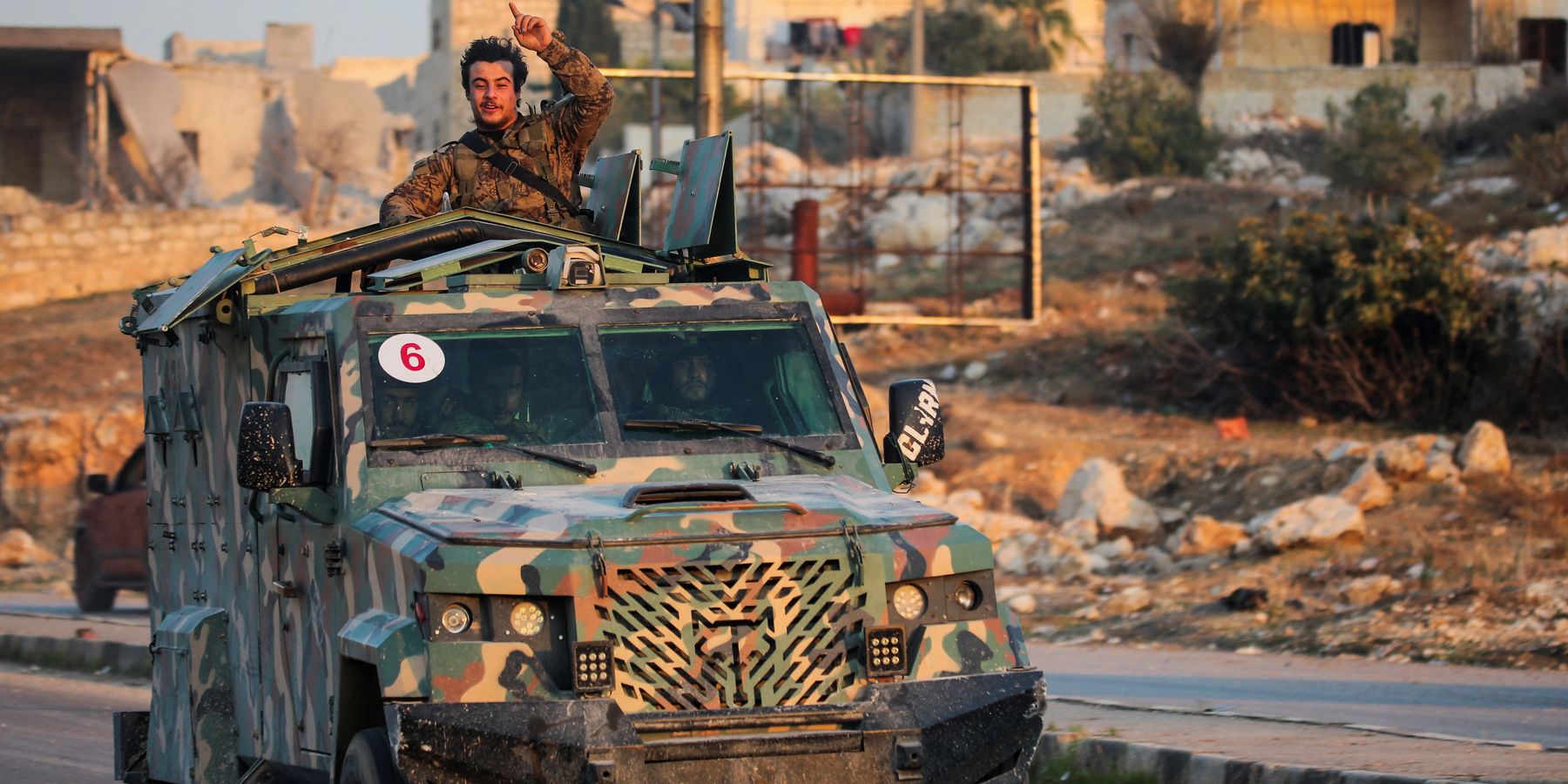Update 12/1: Rebel forces led by Hayat Tahrir al-Sham (HTS) have taken most of Aleppo with Syrian army forces pulling back amid losses. According to reports, rebel forces were making their way to Hama early Sunday and "claiming control of government-held areas along the way."
Forces under the banner of Hayat Tahrir al-Sham (HTS), jumping off from their territory in the Syria’s northwestern Idlib province, have sliced through Bashar al-Assad’s army and penetrated Aleppo.
HTS is derived from al Qaeda’s Syrian branch. Al Qaeda was pushed out of Syria by more radical splinter factions early in the civil war. HTS evolved once the conflict was well underway. When the smoke cleared, HTS remained in control of Idlib, which it turned into a mini-Islamic republic under Turkish protection. It was a good fit for Idlib, which had been a source of militant resistance to the Assad government at the very outset of the civil war.
As of this writing, HTS fighters have reached the center of Aleppo and seized a town that commands the M5 highway, a key route Assad’s forces would need to reach the city and try to pry the HTS militants from within. Assad had only taken Aleppo back from insurgents in a battle during the summer of 2016 with the help of Lebanese Hizballah.
Turkey’s role in this offensive is murky. The attackers, according to news reports, include not only HTS formations, but Sunni militias that have been mobilized and equipped by Turkey over the past few years. This suggests that the HTS campaign might be a Turkish wedge to complicate Assad’s already tenuous reach across Syrian territory and establish de facto Turkish control over a large swath of Syria and one of its largest cities. In this scenario, management of the area’s two million people could be left to HTS, while Turkey reaped the dubious strategic benefit.
For Assad, this is nearly the equivalent of October 7 for Israel. But he has none of the advantages that Israel enjoyed in stabilizing the situation after the attack, going on the offensive, and pulverizing Hamas. Although there are rumors of Russian airstrikes against HTS, the fact is that the Russians are stretched thin by their war against Ukraine and will find it hard to rescue their man in Damascus. And there will be no help from either Iran or Lebanese Hezbollah. Tehran lacks the means and whatever it can muster will be in Israel’s gunsights very quickly. And Hezbollah is reeling from Israel’s recent offensive and couldn’t mobilize the fighters needed to get HTS out of Aleppo let alone reach Aleppo on the ground.
Looking around Syria’s outer perimeter, it’s hard to see Saudi Arabia intervening militarily on behalf of Assad. With Turkey pressing from the North, Israel from the West and no countervailing pressures from the East or South, Assad could find his statelet shrinking fast.
- Is Israel expanding territorial control toward Syria? ›
- Ending the Syria war, getting US troops out, and lifting sanctions ›
- Turkey and Israel are reaping rewards from the chaos in Syria | Responsible Statecraft ›
- Assad falls, reportedly fleeing Syria. What's next? | Responsible Statecraft ›
- The fall of Assad is a defeat for Russia — and no 'win' for the US | Responsible Statecraft ›
















